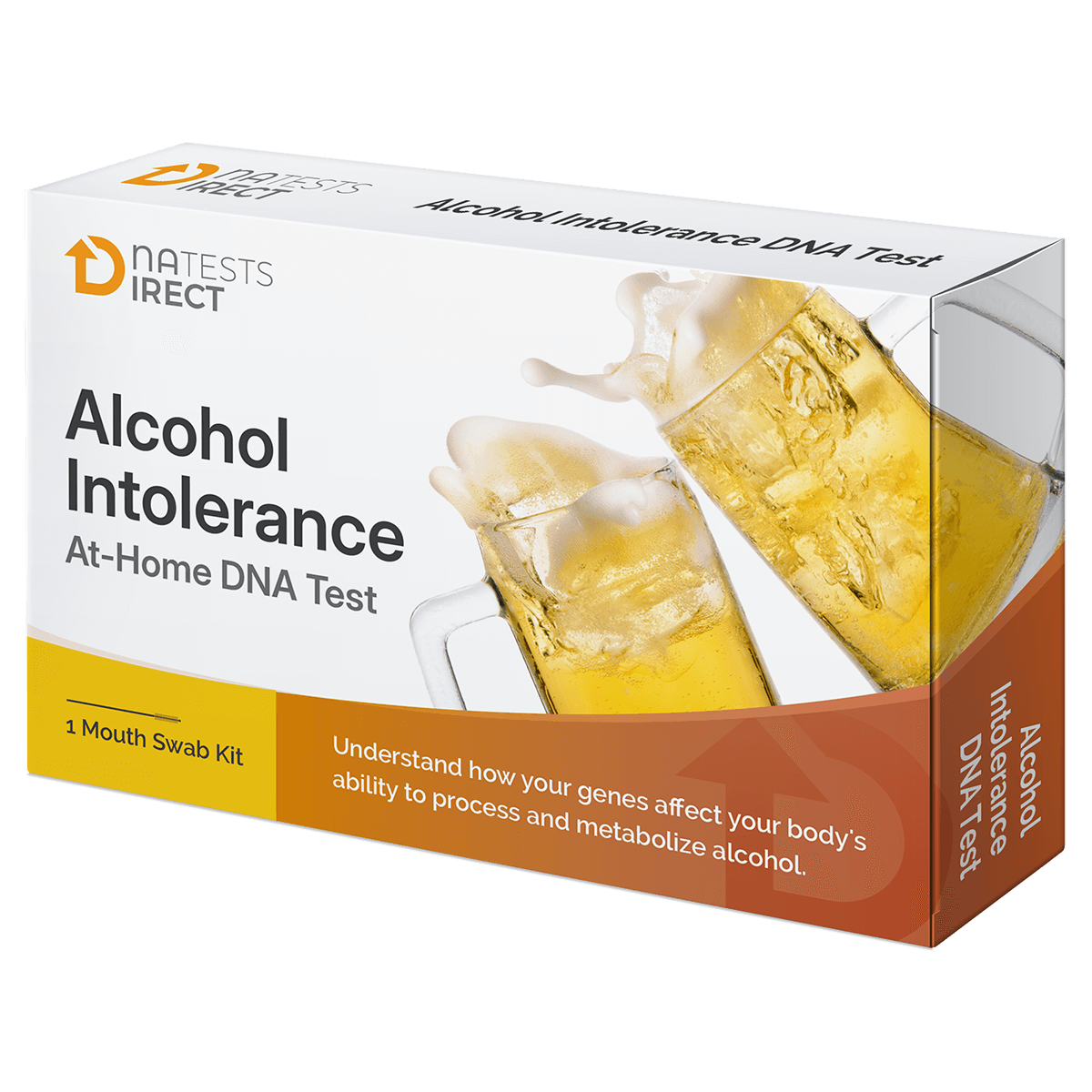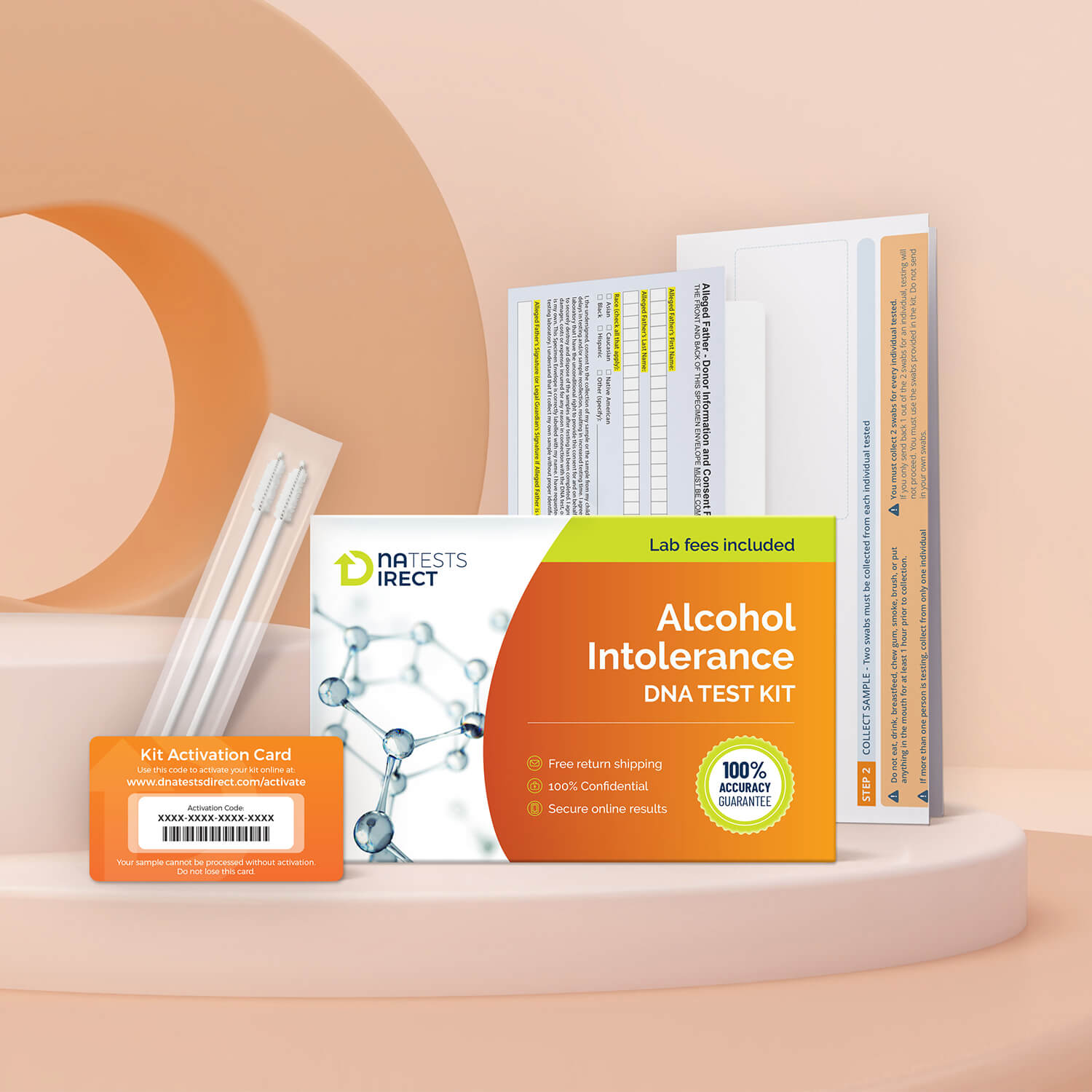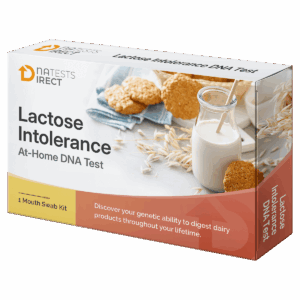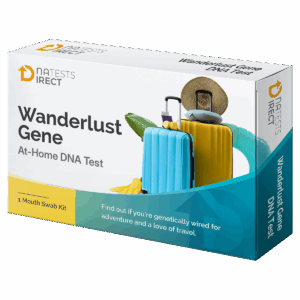DNA Alcohol Intolerance Test
$149
Understand Your Alcohol Intolerance
The DNA Alcohol Intolerance Test reveals how your genes influence your body’s ability to process alcohol. Discover why you may experience symptoms like facial flushing, nausea, and headaches after drinking, and learn your potential risk for related health conditions.
- Uncover Your Genetic Risk: Understand your genetic predisposition for alcohol intolerance and the potential for health concerns like esophageal cancer.
- Get Clear Answers: Learn if your reactions to alcohol, like facial flushing or severe hangovers, are linked to your body's ability to process it.
- The Science of Metabolism: This test analyzes key variants in your ADH1B, ADH1C, and ALDH2 genes to reveal how efficiently your body metabolizes alcohol.
- Easy At-Home Testing: A painless mouth swab is all that's needed – no doctor's visit required.
How it Works

Order your DNA Kit
Place your order online, and we’ll send you a DNA test kit with everything you need to collect your samples.
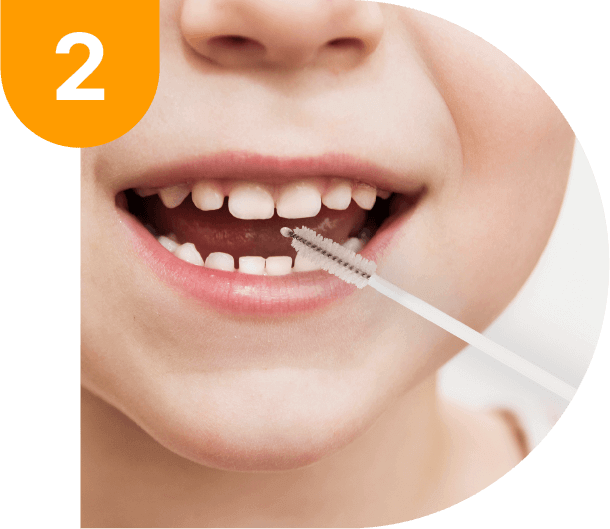
Collect DNA Samples
Follow the detailed, step-by-step instructions to collect DNA samples using the provided mouth swabs.
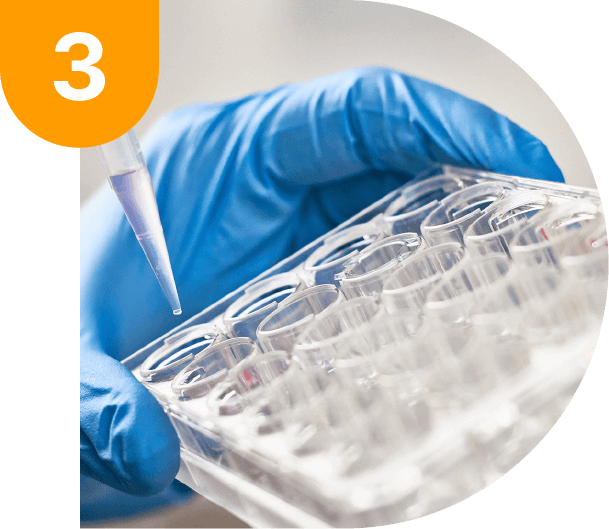
Lab Analysis
Use the provided return envelope to mail your DNA samples to our laboratory for analysis.

Receive Results
Download your results from your secure online account as soon as they’re ready.
What Is Alcohol Intolerance?
Alcohol intolerance is when your body struggles to break down alcohol properly. Normally, your liver processes alcohol in two main steps. First, enzymes called alcohol dehydrogenase (ADH) turn alcohol into a toxic chemical called acetaldehyde. Then, another set of enzymes called aldehyde dehydrogenase (ALDH) quickly changes acetaldehyde into a harmless substance called acetate.
Some people have genetic variations that disrupt this process, leading to a buildup of acetaldehyde even after moderate alcohol consumption. This can lead to immediate reactions like facial flushing and nausea, as well as increased risks of esophageal cancer and other health problems. Alcohol intolerance often runs in families and is more common in certain ethnic groups.
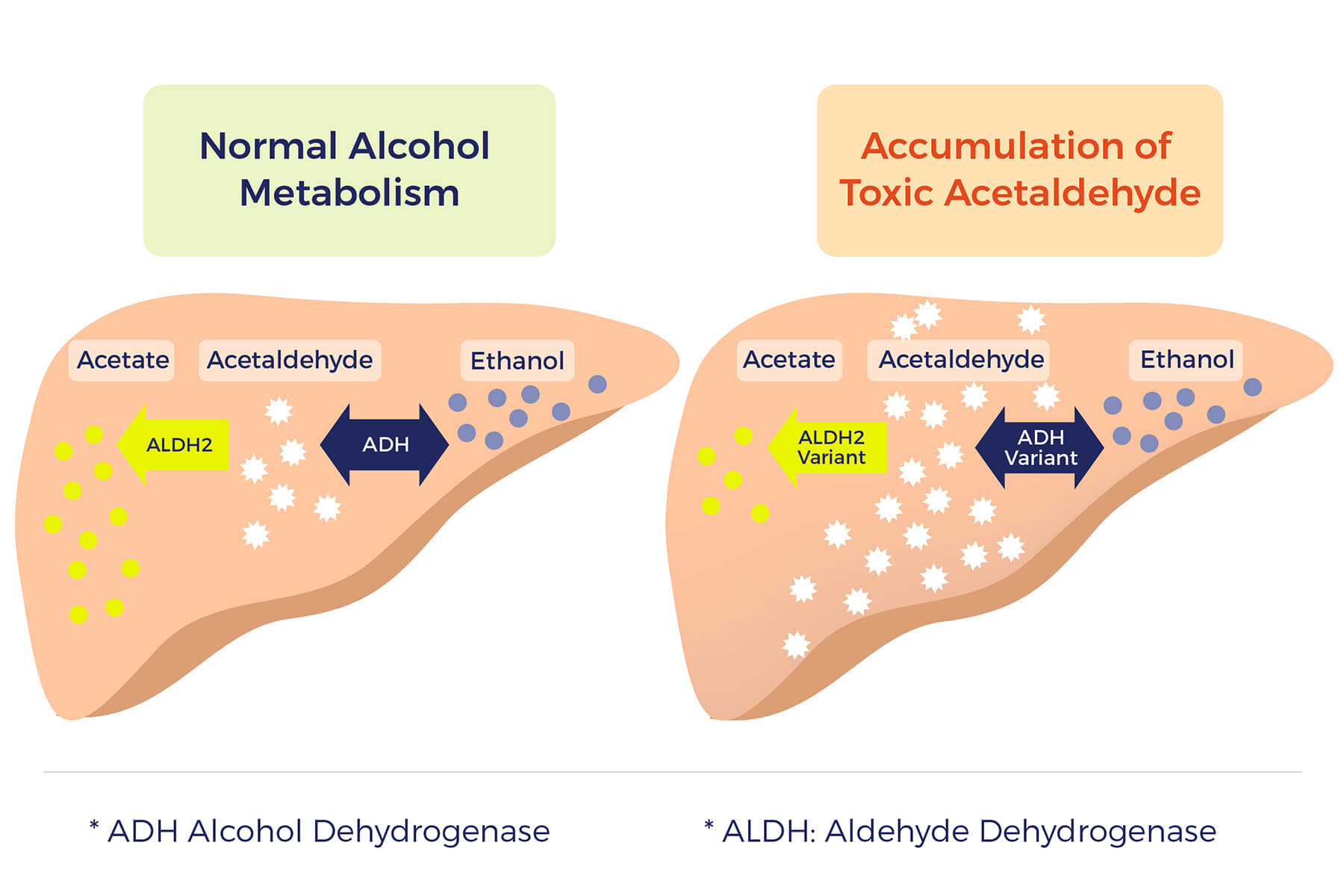
The Genetics of Alcohol Metabolism
The way your body handles alcohol depends on specific genes that control the enzymes involved in breaking down alcohol.
- ADH1B and ADH1C: These genes help produce enzymes that convert alcohol into acetaldehyde. Changes in these genes can make this happen too fast, leading to quick discomfort after drinking even small amounts of alcohol.
- ALDH2: This gene affects how fast acetaldehyde is changed into acetate. Variations in this gene can slow down this conversion, letting acetaldehyde hang around in your body longer and causing stronger symptoms of intolerance.
Understanding your specific genetic variations in these genes helps explain your individual responses to alcohol and can inform future choices about drinking.
Understanding Your Results
The DNA Alcohol Test analyzes three key variants linked to alcohol metabolism:
| Gene | Variants | Description |
|---|---|---|
| ADH1B | rs1229984 | This variant can make your body break down alcohol into acetaldehyde faster, leading to quicker and more intense symptoms like facial flushing and discomfort. |
| ADH1C | rs1693482 | This variant can slightly increase how much acetaldehyde your body makes from alcohol, contributing to intolerance symptoms. |
| ALDH2 | rs671 | This important variant can greatly slow down how quickly your body clears acetaldehyde, causing strong reactions like flushing and an increased risk of esophageal cancer. |
By analyzing these variants, this test helps you understand your body’s specific reactions to alcohol, enabling you to make more informed choices about drinking.
Frequently Asked Questions
What does the DNA Alcohol Intolerance Test reveal?
This test analyzes key genes to understand how your body metabolizes alcohol. The results will provide valuable insights into your genetic predisposition to alcohol intolerance, helping you make more informed decisions about your alcohol consumption for your health and well-being.
Who should consider taking this test?
Anyone who experiences symptoms like flushing, nausea, or a rapid heartbeat after drinking alcohol, or those who are simply curious about how their body processes alcohol, should consider this test. Understanding your genetic profile can help you manage your drinking habits more effectively.
How is the sample for the DNA Alcohol Intolerance Test collected?
The sample is collected using simple and painless mouth swabs. The kit comes with everything you need, and you can easily collect the sample yourself from the comfort of your home.
Is the science behind this test reliable?
Yes, this test is based on analyzing specific genetic markers (ADH1B, ADH1C, ALDH2) that have been scientifically linked to how the body metabolizes alcohol. Our laboratory is accredited by AABB, CAP, CLIA, and ISO 17025, ensuring the highest standards of accuracy and reliability, backed by over years of excellence.
How can I use the results of the DNA Alcohol Intolerance Test?
The results can empower you to make personalized choices about your alcohol intake. By understanding your genetic sensitivity, you can better manage unpleasant symptoms and make healthier decisions regarding your alcohol consumption.
Are there any physical symptoms of alcohol intolerance?
Yes, common symptoms of alcohol intolerance include skin flushing, nasal congestion, headaches, nausea, and a rapid heartbeat after consuming alcoholic beverages. This test can help determine if your genes contribute to these reactions.
Is your testing facility reputable and accredited?
How will I receive my results?
How long does it take to get results?
Once your sample is received by our laboratory, processing usually takes 6-8 weeks. You will receive an email notification when your results are ready, and you can access your detailed report through a secure online portal.
Is the testing process confidential?
Yes, your confidentiality is guaranteed. From the discreet packaging of the test kit to the secure delivery of your results, we ensure your privacy is protected every step of the way.
